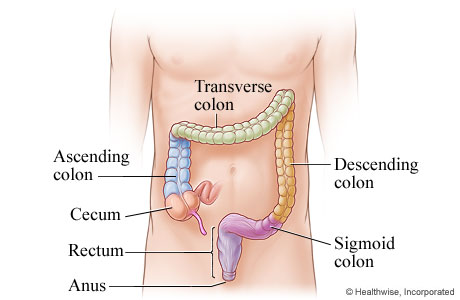 CONTACT US
CONTACT US
Dr Nico Coetzee
Dr Nico Coetzee
Dr Coetzee specializes in Laparoscopic and Open surgery including certain areas of Surgical Oncology
Dr Coetzee specializes in Laparoscopic and Open surgery including certain areas of Surgical Oncology
Dr Coetzee joined the Medi Clinic group at Somerset West in 2009..Previously active and involved in the evolution of Laparoscopic Surgery as a participant and as an educator at Tygerberg Hospital in the Western Cape.
Dr Nico Coetzee
Dr Coetzee specializes in Laparoscopic and Open surgery including certain areas of Surgical Oncology
Dr Nico Coetzee
Dr Coetzee joined the Medi Clinic group at Somerset West in 2009..Previously active and involved in the evolution of Laparoscopic Surgery as a participant and as an educator at Tygerberg Hospital in the Western Cape.
Dr Coetzee joined the Medi Clinic group at Somerset West in 2009..Previously active and involved in the evolution of Laparoscopic Surgery as a participant and as an educator at Tygerberg Hospital in the Western Cape.
Dr Nico Coetzee
Dr Nico Coetzee
Dr Nico Coetzee
Dr Coetzee specializes in Laparoscopic and Open surgery including certain areas of Surgical Oncology
Dr Coetzee specializes in Laparoscopic and Open surgery including certain areas of Surgical Oncology
Dr Coetzee joined the Medi Clinic group at Somerset West in 2009..Previously active and involved in the evolution of Laparoscopic Surgery as a participant and as an educator at Tygerberg Hospital in the Western Cape.
Dr Nico Coetzee
Dr Coetzee specializes in Laparoscopic and Open surgery including certain areas of Surgical Oncology
Dr Nico Coetzee
Dr Coetzee joined the Medi Clinic group at Somerset West in 2009..Previously active and involved in the evolution of Laparoscopic Surgery as a participant and as an educator at Tygerberg Hospital in the Western Cape.
Dr Coetzee joined the Medi Clinic group at Somerset West in 2009..Previously active and involved in the evolution of Laparoscopic Surgery as a participant and as an educator at Tygerberg Hospital in the Western Cape.
Dr Nico Coetzee
COLON RESECTION
What is the colon?
The colon is the large intestine; it is the lower part of your digestive tract. The intestine is a long, tubular organ consisting of the small intestine, the colon (large intestine) and the rectum, which is the last part of the colon. After food is swallowed, it begins to be digested in the stomach and then empties into the small intestine, where the nutritional part of the food is absorbed. The remaining waste moves through the colon to the rectum and is expelled from the body. The colon and rectum absorb water and hold the waste until you are ready to expel it.
What is laparoscopic colon resection?
A technique known as minimally invasive laparoscopic colon surgery allows surgeons to perform many common colon procedures through small incisions. Depending on the type of procedure, patients may leave the hospital in a few days and return to normal activities more quickly than patients recovering from open surgery.
In most laparoscopic colon resections, surgeons operate through 4 or 5 small openings (each about a quarter inch) while watching an enlarged image of the patient’s internal organs on a television monitor. In some cases, one of the small openings may be lengthened to 2 or 3 inches to complete the procedure.
What are the advantages of laparoscopic colon resection?
Results may vary depending upon the type of procedure and patient’s overall condition. Common advantages are:
- Less postoperative pain
- May shorten hospital stay
- May result in a faster return to solid-
food diet - May result in a quicker return of bowel function
- Quicker return to normal activity
- Improved cosmetic results
Are you a candidate for laparoscopic colon resection?
Although laparoscopic colon resection has many benefits, it may not be appropriate for some patients. Obtain a thorough medical evaluation by a surgeon qualified in laparoscopic colon resection in consultation with your primary care physician to find out if the technique is appropriate for you.
What preparation is required?
Advance tests:
Most diseases of the colon are diagnosed with one of two tests: a colonoscopy or barium enema. A colonoscopy is a soft, bendable tube about the thickness of the index finger, which is inserted into the anus and then advanced through the entire large intestine. A barium enema is a special x-
Preparing for surgery:
Preoperative preparation includes blood work, medical evaluation, chest x-
After Doctor Coezee reviews with you the potential risks and benefits of the operation, you will need to provide written consent for surgery.
Blood transfusion and/or blood products may be needed depending on your condition.
It is recommended that you shower the night before or morning of the operation.
The rectum and colon must be completely empty before surgery. Usually, the patient must drink a special cleansing solution. You may be on several days of clear liquids, laxatives and enemas prior to the operation.
Antibiotics by mouth are commonly prescribed. Your surgeon or his/her staff will give you instructions regarding the cleansing routine to be used.
Follow Doctor Coetzee’s instructions carefully. If you are unable to take the preparation or the antibiotics, contact Doctor Coetzee.
If you do not complete the preparation, it may be unsafe to undergo the surgery and it may have to be rescheduled.
After midnight the night before the operation, you should not eat or drink anything except medications that your surgeon has told you are permissible to take with a sip of water the morning of surgery.
Drugs such as aspirin, blood thinners, anti-
Diet medication or St. John’s wort should not be used for the two weeks prior to surgery.
Quit smoking and arrange for any help you may need at home.
How is laparoscopic colon resection performed?
“Laparoscopic” surgery describes the techniques a surgeon uses to gain access to the internal surgery site. Most laparoscopic colon procedures start the same way. Using a cannula (a narrow tube-
What happens if the operation cannot be performed or completed by the laparoscopic method?
In a number of patients the laparoscopic method cannot be performed. Factors that may increase the possibility of choosing or converting to the “open” procedure may include:
- Obesity
- A history of prior abdominal surgery causing dense scar tissue
- Inability to visualize organs
- Bleeding problems during the operation
- Large tumors
The decision to perform the open procedure is a judgment decision made by your surgeon either before or during the actual operation. When Doctor Coetzee feels that it is safest to convert the laparoscopic procedure to an open one, this is not a complication, but rather sound surgical judgment. The decision to convert to an open procedure is strictly based on patient safety.
What should I expect after surgery?
After the operation, it is important to follow your doctor’s instructions. Although many people feel better in a few days, remember that your body needs time to heal.
You are encouraged to be out of bed the day after surgery and to walk. This will help diminish the soreness in your muscles.
You will probably be able to get back to most of your normal activities in one to two weeks time. These activities include showering, driving, walking up stairs, working and engaging in sexual intercourse.
Call and schedule a follow-
What complications can occur?
These complications include:
- Bleeding
- Infection
- A leak where the colon was connected back together.
- Injury to adjacent organs such as the small intestine, ureter, or bladder
- Blood clots to the lungs.
It is important for you to recognize the early signs of possible complications. Contact your surgeon if you notice severe abdominal pain, fevers, chills, or rectal bleeding.
When to call your doctor?
- Be sure to call your physician or surgeon if you develop any of the following:
- Persistent fever over 39°C
- Bleeding from the rectum
- Increasing abdominal swelling
- Pain that is not relieved by your medications
- Persistent nausea or vomiting
- Chills
- Persistent cough or shortness of breathe
- Purulent drainage (pus) from any incision
- Redness surrounding any of your incisions that is worsening or getting bigger
- You are unable to eat or drink liquids
About conventional colon surgery?
Each year, more than 600,000 surgical procedures are performed in the United States to treat a number of colon diseases. Although surgery is not always a cure, it is often the best way to stop the spread of disease and alleviate pain and discomfort.
Patients undergoing colon surgery often face a long and difficult recovery because the traditional “open” procedures are highly invasive. In most cases, surgeons are required to make a long incision. Surgery results in an average hospital stay of a week or more and usually 6 weeks of recovery.



